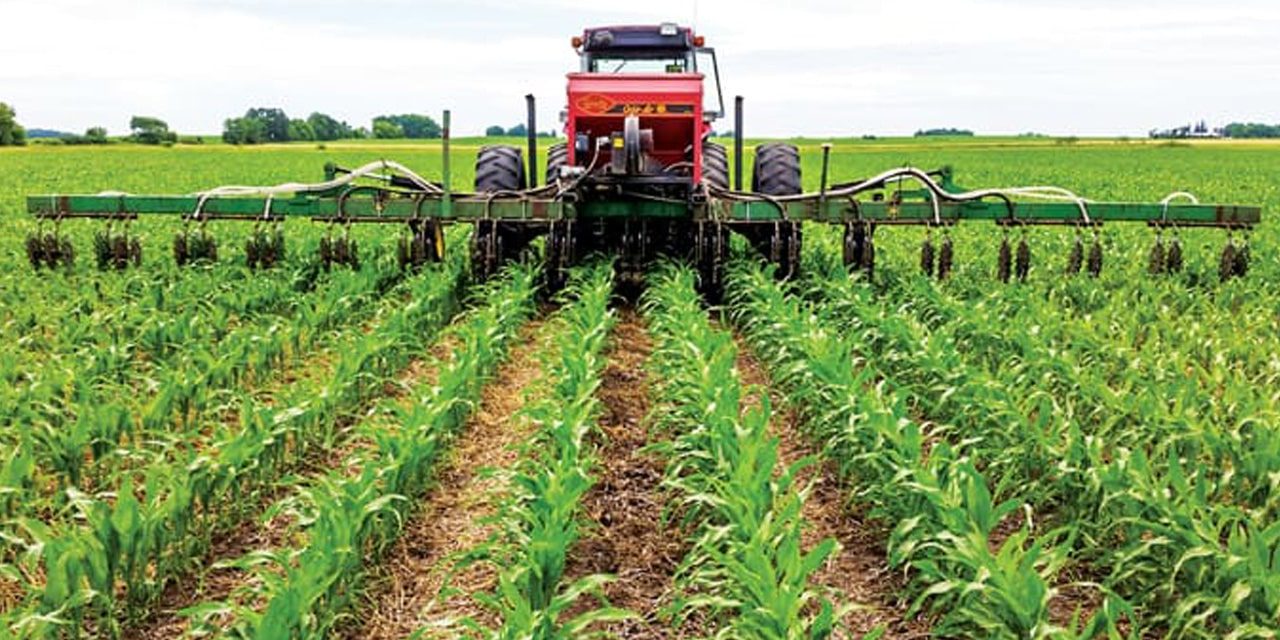Precision Weed Management For Sustainable Crop Production
Weed control is a crucial aspect of crop production, contributing to the success and productivity of farms. Farmers worldwide face the challenge of managing weed infestations, which can negatively impact crop growth and yield. In this post, we will explore the importance of weed control and discuss effective strategies to manage this common agricultural problem.
As a farmer, understanding the detrimental effects of weeds on your crops is essential. Weeds compete with cultivated plants for essential resources such as water, nutrients, and sunlight. Their rapid growth can overshadow crops, reducing the availability of sunlight for photosynthesis. Additionally, weeds may release chemicals that inhibit the growth of surrounding plants, further affecting the crop's health and yield.
To ensure optimal crop growth, it is crucial to implement effective weed control measures. Here are some ideas for successful weed management:
What is Weed Control?
Weed control refers to the various practices and strategies employed to eliminate or manage unwanted plants in agricultural settings. The primary goal is to minimize weed competition with cultivated crops, allowing them to thrive and reach their full potential.
Ideas For Effective Weed Control
1. Crop Rotation: Implementing a crop rotation system can help disrupt weed life cycles. By alternating different crops in different seasons, the growth patterns of weed species can be interrupted, reducing their prevalence over time.
2. Mechanical Methods: Mechanized equipment, such as tillers and cultivators, can physically remove weeds from the soil. This method is particularly effective for larger farm operations and can be used in conjunction with other weed control strategies.
3. Mulching: Applying a layer of organic or synthetic mulch around plants helps suppress weed growth by depriving them of sunlight. Mulching also helps retain soil moisture and regulate temperature, benefiting crop growth.
4. Chemical Herbicides: Selective herbicides can be used to target specific weed species while preserving the health of cultivated crops. It is essential to choose the appropriate herbicide for the target weeds, considering factors such as weed type, growth stage, and environmental impact.
5. Biological Control: Introducing natural enemies of weeds, such as insects or pathogens, can help reduce weed populations. This method requires careful consideration to avoid unintended consequences, as the biological agents should only target the specific weed species without affecting the crop or native plants.
6. Hand Weeding: Although labor-intensive, hand weeding can be an effective method for small-scale farmers or in areas where chemical herbicides are not desired. This method requires attention to detail to ensure complete removal of weed roots, preventing their regrowth.
7. Integrated Weed Management (IWM): IWM involves combining multiple weed control strategies to create a holistic approach. By using a combination of cultural, mechanical, chemical, and biological methods, IWM aims to minimize the reliance on a single strategy and increase overall weed management effectiveness.
Recommendations for Effective Weed Control
1. Early Detection: Regular monitoring of fields is crucial to identify weed infestations at an early stage. Prompt action can prevent weed spread and minimize their impact on crop growth. Train yourself and your workers to recognize different weed species and their growth patterns.
2. Timing: Timing is essential when implementing weed control measures. Understanding the life cycles of common weed species can help determine the most effective time for weed management. Some weeds are more susceptible to certain control methods during specific growth stages.
3. Proper Application: When using herbicides, follow the instructions on the label carefully. Applying the correct dosage and ensuring even coverage will maximize effectiveness while minimizing the risk of herbicide resistance or damage to crops.
4. Crop Health and Vigor: Healthy crops are better equipped to withstand weed competition. Employing good agricultural practices, such as maintaining optimal nutrient levels, adequate irrigation, and pest control, can enhance crop health and reduce the vulnerability to weeds.
Listicle of Effective Weed Control Strategies
1. Crop Rotation: A tried and tested method for interrupting weed life cycles.
2. Mulching: Suppresses weed growth and improves soil moisture retention.
3. Mechanical Methods: Tilling and cultivation to physically remove weeds from the soil.
4. Chemical Herbicides: Targeted herbicides for specific weed control.
5. Biological Control: Using natural enemies to reduce weed populations.
6. Hand Weeding: Labor-intensive but effective for small-scale operations.
7. Integrated Weed Management (IWM): A holistic approach combining multiple strategies.
Frequently Asked Questions about Weed Control
Q: Are herbicides harmful to the environment?
A: When used according to their label instructions, herbicides pose minimal risk to the environment. However, it is crucial to choose the appropriate herbicide for the target weed and use it responsibly to minimize any potential negative impact.
Q: How long does it take for weeds to affect crop growth?
A: Weeds can start competing with crops for essential resources within days or weeks of emerging. Their impact on crop growth can vary depending on weed density, growth rate, and crop susceptibility. Early weed control is vital to prevent significant yield losses.
Q: Can weeds develop resistance to herbicides?
A: Yes, weeds can develop resistance to herbicides over time. Overreliance on a single herbicide or inadequate stewardship practices can accelerate the development of herbicide-resistant weed populations. It is essential to adopt integrated weed management strategies to prevent or manage herbicide resistance.
Summary of Weed Control Importance
Weed control is a critical component of successful crop production. Weeds can significantly impact crop growth and yield by competing for essential resources and releasing chemicals that inhibit crop development. By implementing effective weed control strategies such as crop rotation, mulching, mechanical methods, and targeted herbicides, farmers can minimize weed competition and promote optimal crop health. Early detection, proper timing, and careful application of control measures are essential for successful weed management. Integrated weed management approaches that combine multiple strategies offer a holistic and sustainable solution to weed control. By investing time and effort into weed control, farmers can ensure the productivity and profitability of their crops.

Post a Comment for "Precision Weed Management For Sustainable Crop Production"